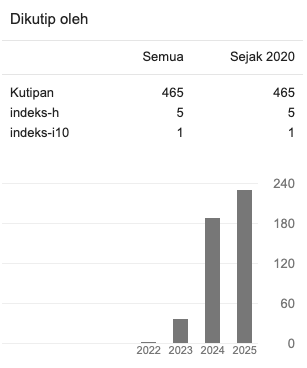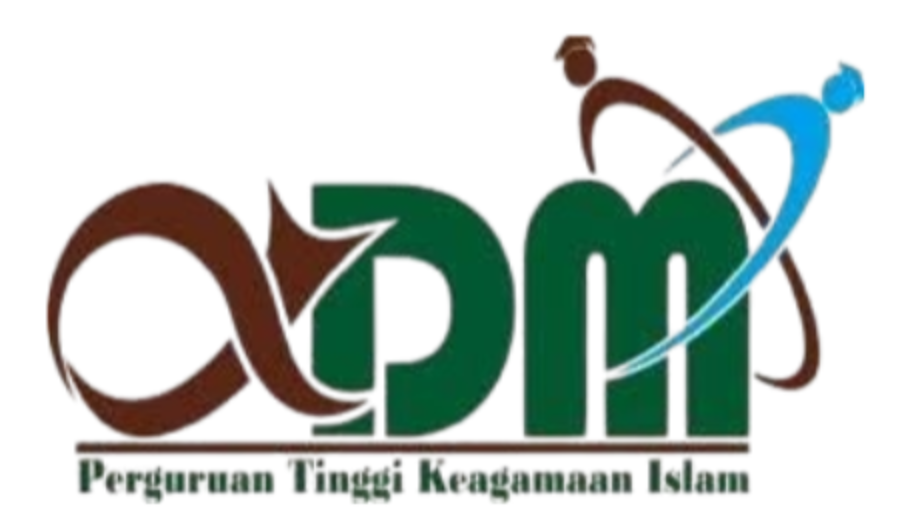HUBUNGAN KEMANDIRIAN BELAJAR DENGAN KEMAMPUAN BERPIKIR KRITIS SISWA KELAS VIII SMP NEGERI 2 GAMPING
DOI:
https://doi.org/10.24260/add.v2i1.1555Keywords:
Self-regulated learning, Critical Thinking Ability.Abstract
The study aims to find out: (1) Is there a relationship between learning independence and critical thinking skills of grade VIII students of SMP Negeri 2 Gamping, (2) How much is the relationship between learning independence and critical thinking skills of grade VIII students of SMP Negeri 2 Gamping. This research is quantitative correlational research. The population in this study was grade VIII students, with a sample of 30 students. Selected by random sampling technique. Research instruments in the form of questionnaires and tests. Data analysis techniques, validity tests and reliability tests. Prerequisite tests are in the form of normality tests and linearity tests. The hypothesis test used a t-test with a significance level of 0.05. The data analysis technique in this study uses the Product Moment correlation. Based on the results of research data analysis, it is known that: (1) there is a positive and significant relationship between learning independence and critical thinking skills of grade VIII students of SMP Negeri 2 Gamping. This can be seen from the sig value. (2-tailed) of 0.000 < 0.05 and Pearson Correlation value of 0.643 > 0.361. In addition, it can be seen from the value of calculate (4.446) > t table (2.048) (2) that the relationship between learning independence and critical thinking skills of grade VIII students of SMP Negeri 2 Gamping is quite strong with a percentage of 41.4%. The critical thinking ability of 41.4% is determined by learning independence. This can be seen from the coefficient of determination value with an R square of 0.414.
References
Hidayat, F., Akbar, P., Bernard, M., Siliwangi, I., Terusan, J. L., Sudirman, J., Tengah, C., Cimahi, K., & Barat, J. (2019). Analisis Kemampuan Berfikir Kritis Matematik Serta Kemandiriaan Belajar Siswa Smp Terhadap Materi Spldv. Journal on Education, 1(2), 515–523. https://jonedu.org/index.php/joe/article/view/106
Lestari, K. E. (2014). Implementasi Brain-Based Learning Untuk Meningkatkan Kemampuan Koneksi Dan Kemampuan Berpikir Kritis Serta Motivasi Belajar Siswa SMP. Judika (Jurnal Pendidikan UNSIKA).
Mahmudi, D. A. S. and A. (2015). KEEFEKTIFAN EXPERIENTIAL LEARNING PEMBELAJARAN MATEMATIKA MTs MATERI BANGUN RUANG SISI DATAR. Jurnal Riset Pendidikan Matematika 2, No 2, 175.
Noer Indria Chrisnawanti, Elok Sudibyo, and Y. (2008). “Peningkatan Keterampilan Berpikir Kritis Siswa Melalui Penerapan Pendekatan Saintifik Pada Materi Getaran Dan Gelombang.
Paradesa, R. (2015). Kemampuan Berpikir Kritis Matematis Mahasiswa Melalui Pendekatan Konstruktivisme Pada Mata Kuliah Matematika Keuangan. Jurnal Pendidikan Matematika JPM RAFA 1, No 2.
Sugiyono. (2015). Metode Penelitian Pendidikan Pendekatan kuantitatif, kuaalitatif, dan R&D. Alfabeta.
Sujana, I. W. C. (2019). Fungsi Dan Tujuan Pendidikan Indonesia. Jurnal Pendidikan Dasar 4, No 1, 29.
Downloads
Published
How to Cite
Issue
Section
License
Copyright (c) 2023 Siti Suprihatiningsih; Richatul Asmah; Kintoko Kintoko

This work is licensed under a Creative Commons Attribution-NonCommercial 4.0 International License.








